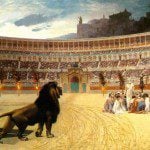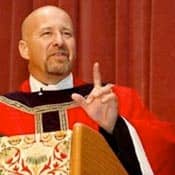They're called 'nones' by the pollsters. This is the name for Americans who do not affiliate themselves with any particular denomination, and the number of 'nones' is growing. A poll conducted by the Pew Forum on Religion and Public Life reports that one in five Americans register as a 'none'. In the last five years alone, the unaffiliated have increased from just over 15 percent to just under 20 percent of all U.S. adults. The 'nones' include more than 13 million self-described atheists and agnostics and nearly 33 million people who say they have no particular religious affiliation. The atheists and agnostics made up 6 percent of those polled and those who simply do not belong to a religious group make up another 14 percent.
The causes for the decline are manifold. Social pressures have a part to play: an increase in materialism saps spiritual awareness; increased mobility erodes traditional family and faith commitments; relativism in moral values eats away at religious verities; increasingly secular and atheistic educational programs along with aggressive attacks on religious beliefs and values all eat away at traditional religious commitment.
The problems are not only with those outside the church. The mainline Protestants are suffering the greatest decline. Five hundred years on from the Protestant Reformation many of the Protestant denominations have lost their identity. Having moved on from the doctrinal and cultural factors that formed them, there's now not much to distinguish between a bland, socially acceptable Baptist congregation and a bland socially acceptable Presbyterian or Methodist church. The mainstream Protestant denominations have drifted into a kind of politically correct do-good religion, and many younger people quite rightly conclude that they don't need to belong to a church to be a good citizen and be spiritual. Non-denominational 'mega churches' have taken up the slack and offer a bland, entertainment-based, 'relevant' message that draws believers away from the denominational congregations by the bus loads.
The Catholic Church shares in many of these same problems; affected by population shifts, materialism, and the infiltration of social gospel thinking, there is not much to distinguish many suburban Catholic congregations from their Protestant neighbors. The clergy sexual abuse scandal, and the erosion of "cultural Catholicism," the decline of Catholic schools, and the watering down of Catholic catechesis means that many Catholics have also concluded that they can be 'spiritual without being religious' and can be involved in good works in the community without having to get up on a Sunday and go to church.
These, and many more, are the specific factors leading to the decline in religious affiliation in America, but when they are taken together we can make a broad analysis that includes all the smaller contributing factors. The broad analysis is this: the Christian Church in America—including the Catholics—is complacent. The American Church is rich, lazy, and lukewarm.
It's the Church of Laodicea that St. John speaks about in the third chapter of the Book of Revelation: "I know your deeds, that you are neither cold nor hot. I wish you were either one or the other! So, because you are lukewarm—neither hot nor cold—I am about to spit you out of my mouth. You say, 'I am rich; I have acquired wealth and do not need a thing.' But you do not realize that you are wretched, pitiful, poor, blind, and naked . . .
It's true that many people leave the church because of their own sin and unbelief, but it is also true that many good people are leaving organized religion because it has failed them. The religious leaders have watered down the faith, weeded out the miraculous element, got comfortable in their suburban lives, ignored the poor, and catered to the rich with a religion that has become an easy mix of self help philosophy, pious platitudes, and entertainment.
Jesus Christ is the Lion of Judah and we have tried to tame him. But Christ, like Aslan, is not a tame lion. He will not be kept in a cage on display. The Christian churches are emptying because they've lost touch with the powerful, life-changing, and astounding reality of the historic and traditional Christian gospel.
What's the answer? It is very simple; but what is simple is never easy. The answer is for a renewal of a vibrant, self-sacrificial, and dynamic orthodoxy that is joyful, hard working, and energetic. What we need is nuns not 'nones'. The renewed religious orders offer an example of the way forward. The Sisters of St. Cecilia in Nashville, the Sisters of Mary, Mother of the Eucharist, the Sisters of Life, the Poor Clares of Perpetual Adoration, the Cistercian Nuns of the Valley of Our Lady, the Franciscan Sisters of the Renewal. These women show the way forward for the whole church.





